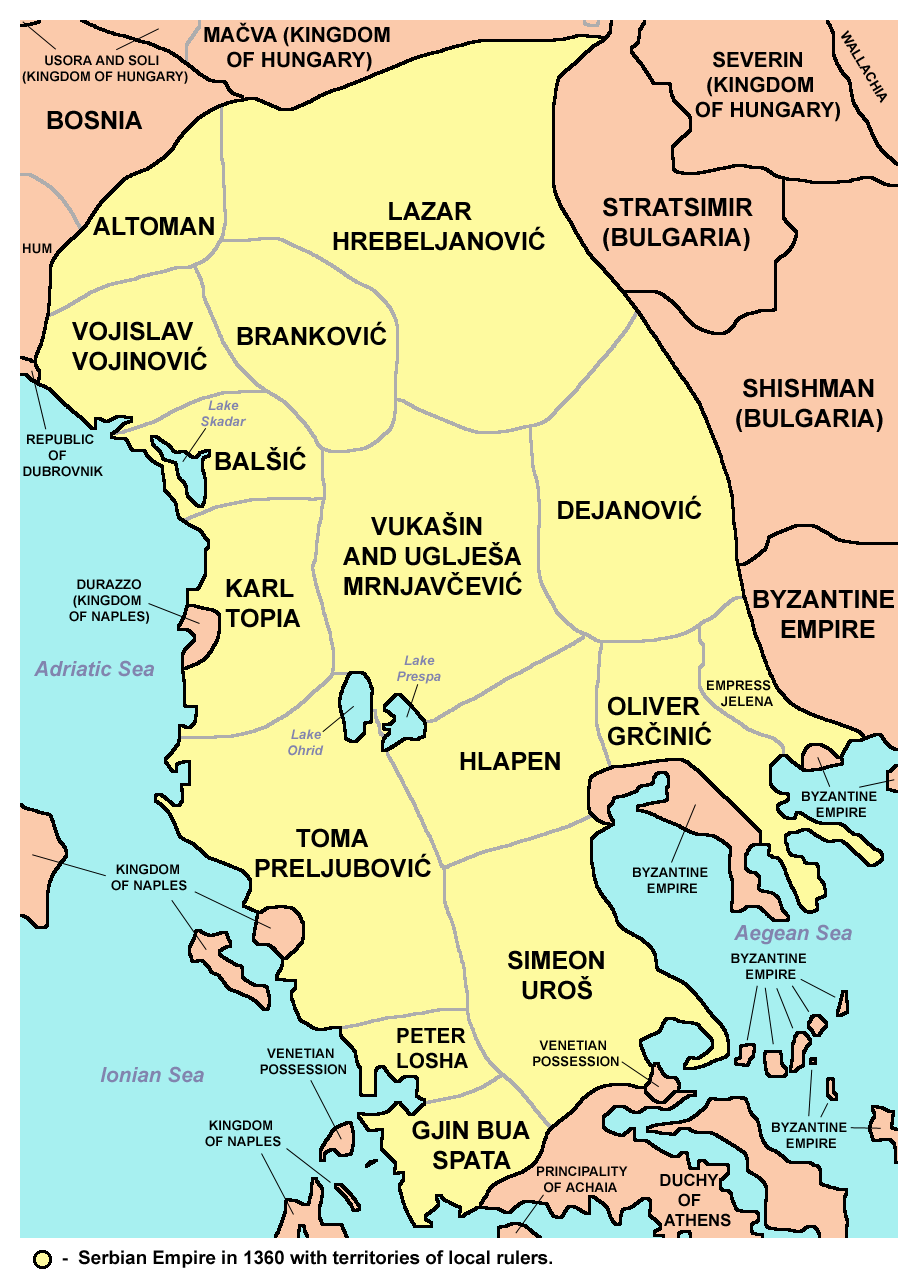|
Pjeter Losha
Pjetër Losha was an Albanian tribes, Albanian clan leader in medieval Epirus. He belonged to the Losha ''fis'' (clan or tribe) and was the leader of a combined force of his own clan and the ''fis'' of Mazaraki and Malakasioi, Malakasi. In 1360, he became Despotate of Arta, Despot of Arta, Rogoi and the area of Amphilochia. He died in 1374 and was succeeded by his close ally, John Spata, Gjin Bua Shpata. The ''Chronicle of the Tocco'' is an important primary source for his life and the Albanians in medieval Epirus in general. Life Losha's genealogy or birth date is unknown. He belonged to the Losha clan, which according to Aristidh Kola, was a branch of Bua (tribe), Bua tribe. Presumably he was born in Epirus as his tribe was from there as well. The word ''lios'' means "pockmark" in Albanian language, Albanian. He was part of the Albanian attacks in the remnants of Byzantine Empire, Byzantine Epirus. In 1358–59, Albanian clans overran the regional feudal rulers and established t ... [...More Info...] [...Related Items...] OR: [Wikipedia] [Google] [Baidu] |
Albanian Tribes
The Albanian tribes () form a historical mode of social organization (''farefisní'') in Albania and the southwestern Balkans characterized by a common culture, often common patrilineal kinship ties and shared social ties. The ''fis'' ( sq-definite, fisi; commonly translated as "tribe", also as "clan" or "kin" community) stands at the center of Albanian organization based on kinship relations, a concept that can be found among southern Albanians also with the term ''farë'' ( sq-definite, fara). Inherited from ancient Illyrian social structures, Albanian tribal society emerged in the early Middle Ages as the dominant form of social organization among Albanians. The development of feudalism came to both antagonize it, and slowly integrate aspects of it in Albanian feudal society, as most noble families themselves came from these tribes and depended on their support. This process stopped after the Ottoman conquest of Albania and the Balkans in the late 15th century and was follow ... [...More Info...] [...Related Items...] OR: [Wikipedia] [Google] [Baidu] |

